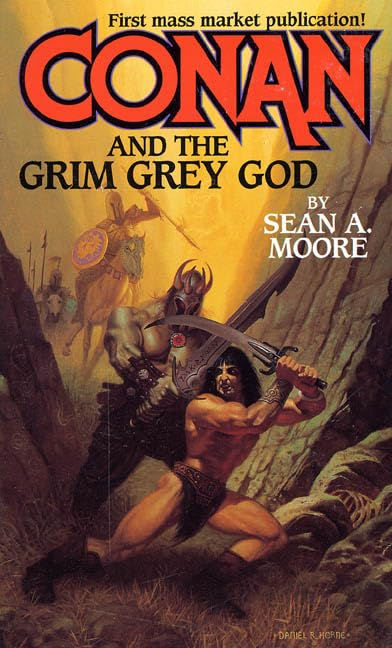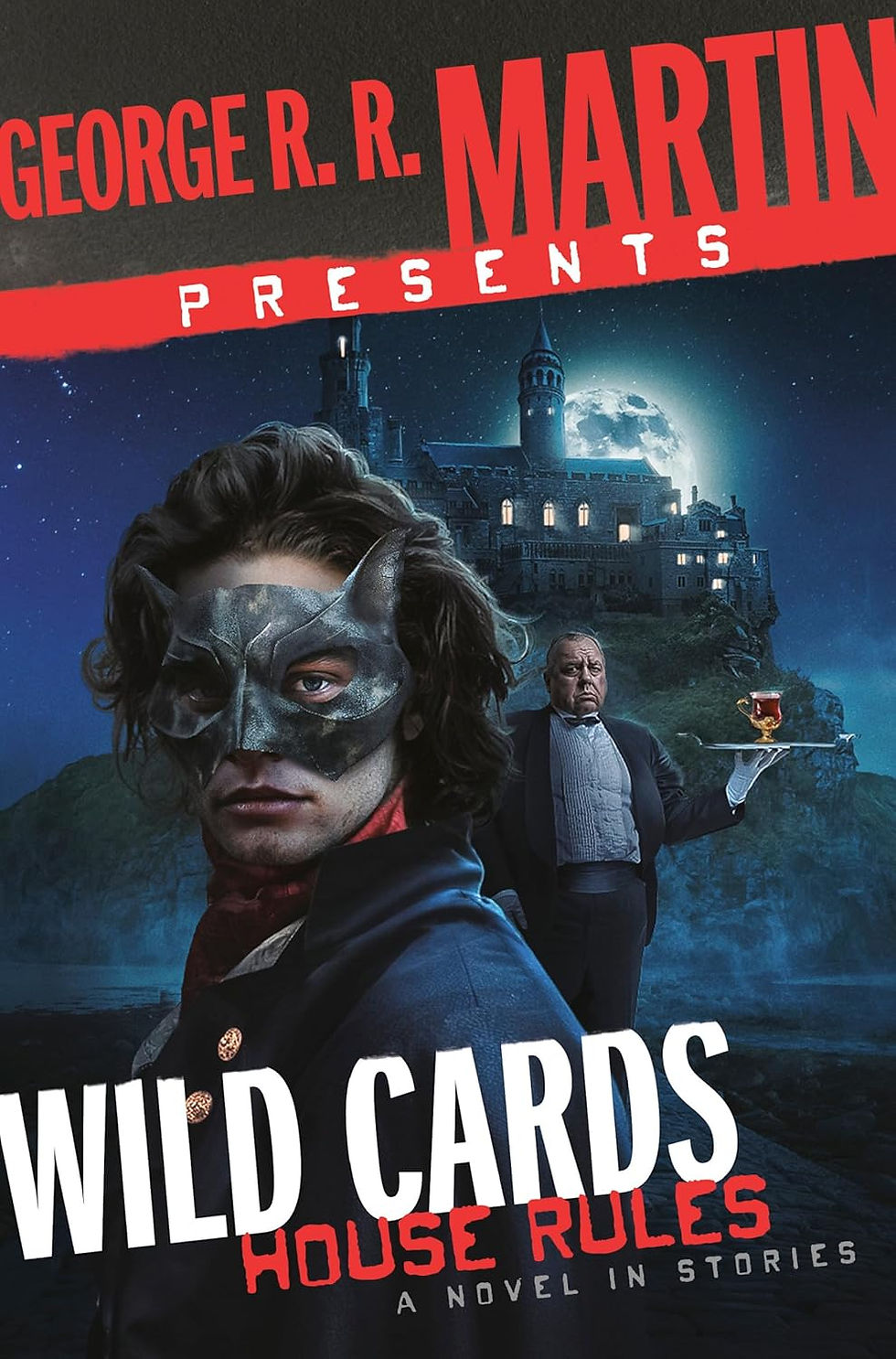Forecast calls for Storm Front with possible zany antics.
- Greg O'Driscoll
- Apr 12, 2023
- 4 min read
Updated: Apr 14, 2023

Storm Front by Jim Butcher
For years, I passed on the Dresden Files. I never precisely turned my nose up at the popular and long-running series, but descriptions I had heard didn’t make it sound like my thing. Besides, I was too busy with my ever-deepening dive into vintage paperbacks. A good friend recently decided to change that and I’m glad they did.
I got a text to check my mailbox, the physical one by the side of the road. The padded envelope inside was the right size for a book. I thought it might be the new Pendergast novel from Preston and Child. My friend and I were both fans, but I had fallen out with the series and asked if it was worth getting back to.
Within, I found a copy of Storm Front by Jim Butcher. Faced with the choice of reading Storm Front or my most recently acquired Wild Cards novel (Texas Hold 'Em, of which I had not heard good things. Reading it did nothing to challenge those reports), I decided to give Mr. Dresden a chance to win me over.
What followed was an offbeat combination of detective noir and high magic. Clive Barker had already explored this combination with his Harry D'amour character, so Harry Dresden's shtick wasn’t a complete revelation, but Mr. Dresden inhabits a much livelier and less grim, though no less dangerous, world than Mr. D'amour. Barker's creation is a man armed with occult knowledge and not much else. Butcher's detective is a full-fledged wizard complete with spells, potions, rods, staves, and other weapons at his disposal.
It was a fun, easy read. Butcher did the most important job of an author, keeping things moving, and he did it with ease. In terms of being a detective mystery, he offers plenty of leads, most of them red herrings or lesser pieces of the puzzle. I chose my favorite suspect early on and turned out to be right. Luckily, knowing who the murderer was didn’t get in the way of an exciting final confrontation.
There were a few twists but nothing too challenging about Storm Front overall, except for one thing. Considering that this was the introduction to Dresden’s world, so ground rules are still being laid out, I had trouble judging just how little or how much the magic side of things was cordoned off from the “real” world.
Harry Dresden openly advertises as a wizard for hire. He works with the police as a special consultant on crimes that go beyond the usual grisly murders. A reporter for an Enquirer-style tabloid dedicated to magical goings-on regularly sniffs after an him for an interview. Harry confronts a mob boss by blowing the front door off his club with a magic rod. Most people seem to understand (and avoid) locking eyes with a wizard exposes you to their “soul gaze”, a kind of two-way psychic connection that reveals each participant’s fundamental inner self to the other.
All of that argues for a world where people are aware of magic. Except that one of the two cops Dresden regularly deals with thinks he is some sort of phony psychic. Dresden’s business card must specify that he doesn’t do entertainment for parties nor love potions (though a love potion does figure into a comedic scene you can see coming from a mile away, more on that in a moment). So, there are disbelievers as well.
Of the characters we meet in the story, those who know and believe seem to outnumber the ones not in on the joke, but a dividing line between the magical and the mundane exists no matter how blurry. I’m sure that line is more firmly established in the next few books. No matter how strong a start, every series is just getting its legs under it in book one. I’m curious to see where things go from here—there’s just one fly in the ointment.
Remember that love potion I said we would come back to? The only reason it is concocted in the first place is because of Bob, a lecherous talking skull that works as a kind of magical assistant to Harry Dresden in his wizard’s lair. When Dresden needs a potion that is actually useful to the current scenario, Bob only agrees to help if Harry lets him help cook up a love potion as well.
Why? Because hijinks, that’s why.
I’m not the biggest fan of hijinks. I know there is an entire camp of fandom that loves what I call “zany hijinks writing”. Me? I want to ride into that camp and put it to the torch and the sword. It’s hard to pin down precisely what I mean by this kind of writing. Usually, it involves references to past or unseen events that imply previous even zanier adventures. Here’s an example of what I mean:

See? Dour, hard-luck Harry Dresden doesn’t do potions well. He’s screwed up several—like the diet potion! And the antigravity potion! But they fixed the floor! So he has to agree to mix up a love potion he doesn’t need to placate the horny skull-spirit that actually knows how to mix potions—so there can be more hijinks, but ones we can read this time!
Is this funny to some people? It comes across as forced and farcical to me, spoiling what is an otherwise strong concept with competent execution. This is the sort of thing that makes me leery about things long term. Not leery enough to stop reading, of course. Jim Butcher knows how to tell a story. I’m getting to the party pretty damn late but I’m enjoying the vibe. I bought the second book Fool Moon just the other day.
The title seems just the littlest bit zany. Should I be worried?



Comments